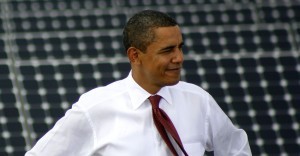Negotiators trying to develop a strong climate agreement in Paris face significant hurdles. The goal of the United Nations Intergovernmental Panel on Climate Change’s 21st Conference of the Parties is to produce an international agreement that will reduce greenhouse gas emissions by an amount necessary to prevent a 2-degree Celsius rise in global average temperature in this century. The conference is likely to fail to meet this goal.
Russian President Vladimir Putin has stated he believes there is no man-created global warming. He says the claims were fabricated to restrain industrial development in several countries, including his own. Currently, Russia’s pledged carbon-dioxide reductions actually amount to an increase in carbon-dioxide emissions. Russia has said its emissions will be “70 to 75 percent” of 1990 levels by 2030, yet this amounts to a significant increase in emissions from current levels. Russian emissions are currently far below the levels produced in the Soviet era. Russia will also count its forests as carbon sinks when accounting for emissions, meaning every molecule of carbon dioxide Russia’s forests absorb will counterbalance an additional molecule of carbon dioxide its industries will be allowed to emit.
Russia isn’t the only influential country standing in the way of any kind of meaningful deal. Six of the top 10 carbon-dioxide-emitting countries, including three of the top four, have not set goals to cut their greenhouse gas emissions. Each of the countries not committing to cut emissions have stated their emissions will continue to grow for at least the next 15 years, including China and India, which are both among the world leaders in emission growth rates. Reports indicate India plans to continue growing its emissions for the next 35 years.
The U.N. Environment Program has concluded even if each country keeps its climate pledges, it would amount to only about half of the greenhouse gas emission cuts supposedly needed to stabilize warming below 2 degrees Celsius. The emissions are expected to grow because Asia is rapidly industrializing, using coal as its fastest-growing source of fuel for electric power. Reuters reports more than 500 coal-fired power plants are under construction in Asia alone in 2015, with 1,000 more planned.
Coal has many virtues as a reliable, relatively inexpensive source of fuel for electricity generation. It also has the highest carbon-dioxide emissions of any such fuel source. Few of the coal-fired power plants being built around the world today are using the best, state-of-the-art, hugely expensive, technology used in the United States today. Instead, many plants being built are relatively cheap and produce more pollution than modern plants in developed countries.
Another hurdle to a substantive climate agreement is developing countries have stated that signing any climate agreement in Paris would be dependent on developed countries financing a Green Climate Fund, which, at the behest of President Obama, developed countries agreed to support through technology transfers and financing at a cost of $100 billion per year beginning in 2020. Thus far, pledges to fund the program amount to fewer than $10 billion, and the United States has not contributed a dime, with Congress vowing to deny Mr. Obama any funds for it.
Prakash Javadekar, India’s environment and forests minister, said, “If [the] developed world doesn’t walk the talk on [the] issue of finance, there will be a problem for the Paris outcome.” Due largely to a lack of funding commitments for the Green Climate Fund, 134 developing countries rejected the draft climate agreement provided to them before the most recent round of negotiations in Bonn, Germany.
Even the Obama administration, through Secretary of State John Kerry, has gone on record stating Paris will not deliver a legally binding treaty requiring countries to cut carbon emissions. Mr. Kerry said, “It’s definitively not going to be a treaty. … They’re not going to be legally binding reduction targets like Kyoto or something.”
That’s the final nail in the Paris treaty’s coffin. As the philosopher Thomas Hobbes stated long ago, “Covenants, without the sword, are but words and of no strength.” Without a binding law, the next president can walk away from — or Congress can choose not to fund — any climate commitments Mr. Obama makes in Paris, without penalty.
Despite all these problems, the Paris meetings will likely produce some sort of face-saving agreement. The environmental gravy train is too much of a temptation, so they will commit to sending thousands of delegates on various junkets to exotic locations throughout 2016 to negotiate a treaty around the same time next year. As for stopping climate change, however, any agreement will surely, in the immortal words of William Shakespeare, amount to “a tale, told by an idiot, full of sound and fury, signifying nothing.”





